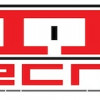Audiogalaxy: New Napster clone
Disappointed with Napster's decision to filter popular songs from its file-swapping network, Jonathan Lemon recently turned to Audiogalaxy, a relatively new alternative for free music downloads that is winning a lot of converts.
This one is from CNET
Disappointed with Napster's decision to filter popular songs from its file-swapping network, Jonathan Lemon recently turned to Audiogalaxy, a relatively new alternative for free music downloads that is winning a lot of converts.
Like Napster, Audiogalaxy filters copyrighted music from its system. In a twist, however, the company helps search off the network for music it refuses to host itself, guiding people to free copies of almost any popular song. People say they are impressed by features such as "resume," which saves time by allowing them to seamlessly pick up where they left off if a download gets cut off midstream.
"I was really excited to find Audiogalaxy," Lemon said, comparing it with other services he'd tried. "Gnutella and BearShare weren't doing it for me. A lot of search issues I had with Napster were suddenly addressed...And most importantly of all, my searches seem to turn up pretty much everything I look for, so I'm back into MP3 mania big time."
Despite a music industry crackdown, file swapping is alive and well on numerous alternative services that have so far avoided open confrontation with record label lawyers. Although none has risen to the wild popularity of Napster, which boasted more than 50 million members during its heyday, many are signing up impressive numbers of people and offering new features that make it as easy as ever to find top hits for free.
Although analysts say it's too soon to pick a winner, the quest to build the new Napster is thriving. Services such as Audiogalaxy, iMesh, LimeWire, BearShare and Music City are hoping to strike the right blend of high performance, comprehensive music listings and legal armor to face down the record industry.
"People are searching around for the best one," said Jarvis Mak, senior Internet analyst at Nielsen/NetRatings. "They haven't found one as easy to use and as successful as Napster yet, but obviously they're looking...They've all got similar features, and whichever ones grab more people--and therefore have a wider collection of songs available--are the ones that prove to stay around longer."
Audiogalaxy's survival is not ensured, but it's moving up the ranks as one of the most popular places to find online music.
According to Nielsen/NetRatings, the number of people visiting Audiogalaxy, which was founded in January 1999 and began its file-sharing system that October, has spiked within the last six months. The number of unique home visitors grew to 989,000 in May from 477,000 the previous month. The service has grown so quickly that it has been unable to keep up with demand.
"Our site is completely flooded," said Audiogalaxy Chief Executive Michael Merhej. "It's just like any Web site or company when you get flooded with traffic more than your capacity. It becomes slow; it doesn't quite work out right. But we'll have those problems fixed eventually--it's just going to take some time."
Merhej said that like Napster, Audiogalaxy uses a central server. So if 100 people, for instance, are sharing music and someone requests a song, the system searches for that music file from one of those 100 people and sends it to that person.
The popularity of Napster stemmed from its wide collection of songs and the simplicity of the file-swapping service. Its central server let people add music to a master database that they could in turn search for music they wanted.
But Audiogalaxy's application, dubbed Audiogalaxy Satellite, differs from Napster because it automatically resumes a download if there is an interruption. For instance, if either the person downloading a file or the one offering that file is disconnected, the system automatically detects the break and resumes the download from another person offering the same file.
Other Napster clones have appeared--especially peer-to-peer networks such as Gnutella, which links PCs without using central servers and therefore without a corporate backer that can be shut down. Gnutella is considered a viable Napster replacement, since many believe that it is bulletproof from copyright lawsuits. But it has had its share of technical problems, especially with slow downloads and complicated sign-up procedures.
Recent Gnutella spinoffs such as LimeWire and BearShare have fixed some of those problems, according to developers. But these services still trail server-based systems such as Audiogalaxy in popularity.
Being a leader in this market is not necessarily a great place to be, however.
Audiogalaxy's Merhej would not comment about the company's revenue or copyright issues, but the Recording Industry Association of America says it has Audiogalaxy on its radar.
"We are aware of them and have been in discussions with them," said Doug Curry, spokesman for the RIAA. "The dialogue is ongoing."






































































